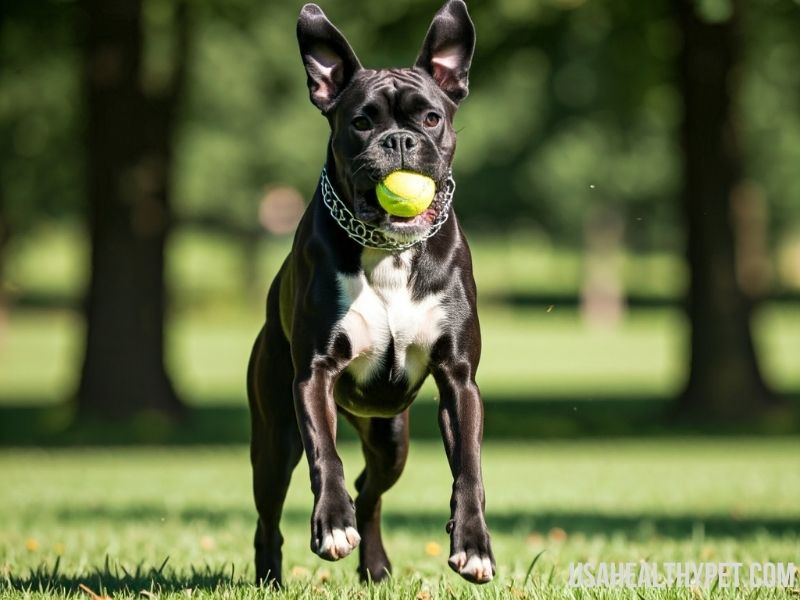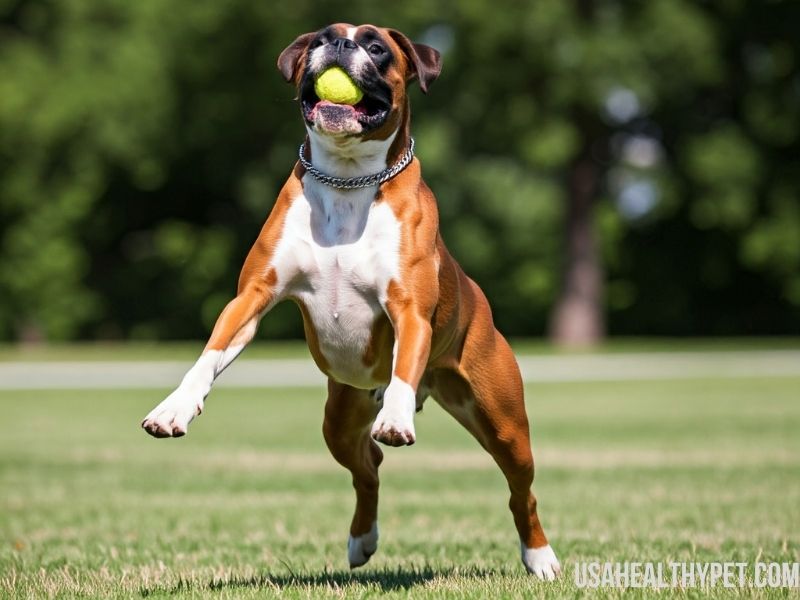When it comes to picking the right dog, you might hear a lot of positive things about different breeds. Boxers often come up as one of the more popular choices, known for their energy, loyalty, and playful nature.
But are they really the best option for everyone? In fact, many dog owners and experts agree that boxers might actually be the worst dogs for certain types of people and households.
Let’s dive deep into this topic, break it down, and find out why boxers might not be the ideal dog for you!
Introduction: The Popularity of Boxers
Boxers are often loved for their goofy expressions and playful personalities. You’ll see them in countless dog parks. But here’s the thing—just because they look cute doesn’t mean they’re the right fit for everyone.
If you’ve ever found yourself overwhelmed by a boxer’s energy or been frustrated by their stubbornness, you’re not alone. So, why exactly are boxers sometimes considered the “worst” dogs?
Boxers Are High-Energy Dogs
If you want a dog that’s going to spend most of its time lounging on the couch, a boxer is not the breed for you. These dogs have the energy to burn—and then some!

Constant Need for Exercise
Boxers require a lot of physical activity, and I mean a lot. We’re talking hours of running, walking, and playing each day.
Studies show that boxers need at least 1-2 hours of exercise daily to stay healthy and happy. Without it, they might act out by chewing on things or barking excessively.
The American Kennel Club (AKC) lists boxers as a “working breed,” meaning they have a natural drive to be active and engaged.
Destructive Behavior
When a boxer doesn’t get enough exercise, their energy turns destructive. They’ll chew on furniture, destroy toys, and may even try to dig up your yard.
It’s not that they’re trying to be bad—they just have too much energy that needs an outlet!
Health Problems in Boxers
Boxers are known for their short, muscular bodies and squished faces, but these physical traits come with health issues that can turn dog ownership into a nightmare.
Prone to Various Illnesses
Unfortunately, boxers are susceptible to a host of health problems. They’re prone to heart issues, such as cardiomyopathy, and can suffer from a range of cancers, like lymphoma.
Their short snouts also lead to breathing problems, particularly in hot weather, which can make exercise dangerous during the summer months.
In a study conducted by the University of California, Davis, researchers found that boxers have a higher likelihood of developing cancer compared to other breeds. This means potential owners need to be prepared not only for higher healthcare costs but also the emotional toll of dealing with a sick pet.
Lifespan Concerns
On average, boxers live between 10 to 12 years. Compared to some smaller breeds that can live upwards of 15 or 16 years, that’s not a lot of time.
Knowing that your dog may face serious health issues earlier in life can be emotionally taxing for any pet owner.

Boxers Are Stubborn and Hard to Train
Another reason boxers can be frustrating? Their stubborn streak. While they’re smart dogs, boxers have an independent mind, which makes training them a real challenge.
Challenges in Obedience Training
Boxers are often difficult to train because they tend to do things on their terms. Sure, they can learn commands, but getting them to follow through consistently is a whole other story.
Training requires a ton of patience, persistence, and maybe a little bit of luck. This can be especially frustrating if you’re someone who’s not used to training dogs.
Not Ideal for First-Time Owners
If you’re a first-time dog owner, boxers can be a handful. Their stubbornness, combined with their high energy, can overwhelm someone who isn’t experienced with dogs.
You’ll need firm boundaries and tons of patience to get through their sometimes rebellious nature.
Pros and Cons of Owning a Boxer
Here’s a quick look at the pros and cons of owning a boxer to help you decide if they’re the right breed for you:
| Pros | Cons |
|---|---|
| Loyal and Protective | Prone to health issues |
| Playful and Energetic | High energy, needs constant exercise |
| Good Family Dogs (with Training) | Can be stubborn and hard to train |
| Friendly and Social | Destructive when bored |
| Great Guard Dogs | Drooling and snoring problems |
Boxers Can Be Overly Protective
While having a protective dog can sound appealing, it can also be a problem. Boxers are very loyal and can become overly protective of their families.
They may growl or bark aggressively at visitors, even if they mean no harm. This behavior can make social gatherings or simply having friends over feel uncomfortable or tense.
They Have Separation Anxiety
Boxers are known for forming close bonds with their owners, which is sweet, but it also leads to separation anxiety.
Leaving your boxer alone for long periods could result in whining, barking, or even destructive behavior. If you work long hours or aren’t home much, a boxer may not be the best fit for your lifestyle.

Not Always Good with Small Pets or Children
If you have small pets or young children, a boxer may not be the best choice.
Their high-energy levels and rough play can easily knock over small kids or overwhelm more delicate pets like cats or small dogs. Despite their best intentions, boxers don’t always know their own strength.
Drooling and Snoring Problems
One of the most unexpected challenges with boxers? Their drooling and snoring! If you’re someone who values cleanliness and quiet, this might drive you up the wall.
Boxers have a tendency to drool—a lot. And their short noses mean they often snore loudly, which can be quite annoying, especially if they sleep in your bedroom.
Conclusion: Are Boxers the Worst?
So, are boxers the worst dogs? Well, it really depends on your lifestyle and what you’re looking for in a dog. For people who love high-energy, playful dogs and don’t mind the training challenges, health issues, or other quirks, boxers can be a wonderful addition to the family.
But for those who prefer a low-maintenance pet or have small children and pets at home, boxers might be more trouble than they’re worth.
If you’re considering getting a boxer, think carefully about whether you can meet their needs and handle their challenges.
At the end of the day, every dog is unique, and the “worst” breed for one person might be the perfect fit for another!
FAQs
1. Do boxers really need that much exercise?
Yes! Boxers have tons of energy, and without daily exercise, they can become bored and destructive.
2. Are boxers good with other dogs?
Boxers can be good with other dogs if they’re properly socialized from a young age. However, their playful, sometimes rough nature may not be a match for smaller or more timid dogs.
3. Can boxers live in apartments?
It’s possible, but not ideal. Boxers need space to run and play, so living in a small apartment could make it harder to meet their exercise needs.
4. Do boxers drool a lot?
Yes, boxers tend to drool quite a bit, especially when they’re excited or after drinking water.
5. How long do boxers typically live?
Boxers generally live around 10 to 12 years, but they can face a variety of health issues that could affect their lifespan.

Pingback: Best Pet Insurance for Brachycephalic Dogs and Cats
Pingback: Are Goldendoodles Allergic to Chicken? Symptoms & Treatment
Pingback: Barrel-Chested Dog Breeds: Health, Care, and Best Breeds